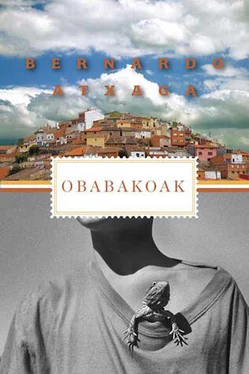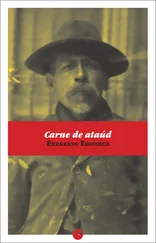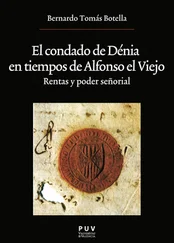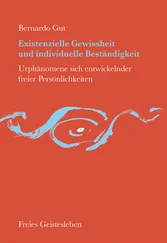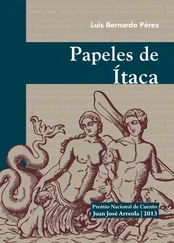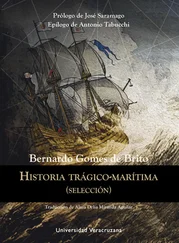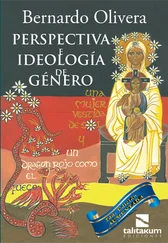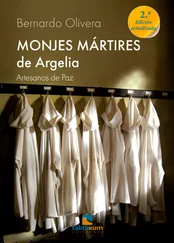Bernardo Atxaga - Obabakoak
Здесь есть возможность читать онлайн «Bernardo Atxaga - Obabakoak» весь текст электронной книги совершенно бесплатно (целиком полную версию без сокращений). В некоторых случаях можно слушать аудио, скачать через торрент в формате fb2 и присутствует краткое содержание. Год выпуска: 2010, Издательство: Graywolf Press, Жанр: Современная проза, на английском языке. Описание произведения, (предисловие) а так же отзывы посетителей доступны на портале библиотеки ЛибКат.
- Название:Obabakoak
- Автор:
- Издательство:Graywolf Press
- Жанр:
- Год:2010
- ISBN:нет данных
- Рейтинг книги:3 / 5. Голосов: 1
-
Избранное:Добавить в избранное
- Отзывы:
-
Ваша оценка:
- 60
- 1
- 2
- 3
- 4
- 5
Obabakoak: краткое содержание, описание и аннотация
Предлагаем к чтению аннотацию, описание, краткое содержание или предисловие (зависит от того, что написал сам автор книги «Obabakoak»). Если вы не нашли необходимую информацию о книге — напишите в комментариях, мы постараемся отыскать её.
Obabakoak
The Observer
Obabakoak — читать онлайн бесплатно полную книгу (весь текст) целиком
Ниже представлен текст книги, разбитый по страницам. Система сохранения места последней прочитанной страницы, позволяет с удобством читать онлайн бесплатно книгу «Obabakoak», без необходимости каждый раз заново искать на чём Вы остановились. Поставьте закладку, и сможете в любой момент перейти на страницу, на которой закончили чтение.
Интервал:
Закладка:
A shaft of light entered the hut, as if a ray of sun had managed to pierce the roof of the tantootzi. But — as I realized when I looked up — that was not the source of light. The light was coming from the door, which was slightly ajar. A red hand was slowly pushing it open. Before I had time to react, an Ashaninka was standing before me. His face and body were painted in many colors.
“Pullcapa!” I cried, not out of terror or fear of the punishment that awaited me, but out of the shame I felt the moment I recognized him. It was not right to betray the man who had saved my life. “I did it for Laura,” I said, showing him the book.
Pullcapa Ayumpari simply stretched out his hand, the way a father would to a small child, calmly, without a trace of displeasure or anger. I obeyed and took his hand. It was like being five years old again.
“Now I understand what it means to be a shirimpiare, ” I thought as we both followed the path that led into the jungle. He was a father to everyone, a great tree, a good river; a man who had suffered only in order to struggle with the Great Enemies who destroyed his brothers, weaker than himself. I remembered what César Calvo had told me, but I did not fear for my life.
Still silent, Pullcapa Ayumpari led me to a clearing in the jungle full of small mounds made out of pebbles from the river. Each mound, surrounded by bows and arrows, was adorned with white flowers. I understood that this was where the Ashaninka warriors were buried.
Pullcapa let go of my hand and indicated that I continue along the path. Again I obeyed.
Twenty paces on was one solitary mound. There were no flowers this time only a gold object with three ribbons.
“So he didn’t throw it in the river,” I thought sadly. For that golden object was none other than the medal the army had bestowed on Thomas Sheldon, Medical Captain. One of the ribbons, the larger one, bore the cross and colors of the Union Jack. The other two represented the Red Cross and the Republic of France.
“You suffered greatly. Now rest in peace.” I prayed as I knelt.
“When I returned to where I had left Pullcapa, I found myself alone. The shirimpiare, the good father of all the Ashaninka, had returned to the celebrations by the Unine.
“I want you to be the one to tell her. I don’t feel able to,” I said to César Calvo. He was much surprised by what I had told him. He just could not understand Pullcapa’s behavior.
“Oh well, it’s better this way. Don’t worry. I’ll go and tell Laura now,” he said.
I spent that afternoon wandering through the jungle that surrounded the village. I envied the Ashaninka, whose voices and laughter I heard each time I approached the river, and I felt sad not to be able to share their happiness and innocence. I wondered how Laura had reacted to the news that her husband was dead. But that was not the only question I asked myself. There were many others, all of them difficult, perplexing ones. What was I going to do? Should I speak to Laura before the journey was over and she returned to Dublin? What if she felt nothing for me? But the only answer to any of these questions was to keep walking, to keep thinking, to keep searching.
When I returned to the village at nightfall, a group of warriors offered me some chuchuwasi. They were happy, very happy, and wanted me to be happy too. I accepted their offer and took a drink.
“Not bad,” I said.
The chuchuwasi was not dissimilar in taste to cherry liqueur — I liked it. I drank a second glass, then a third and a fourth. Two hours later I was completely drunk and as happy as they were.
I don’t remember how I made it back to my bed nor what I got up to during the hours spent with the warrior drinkers of chuchuwasi. To judge by the mocking looks I received when I woke up, however, I assume my behavior must have been rather comical.
“Ah, so you’ve opened your eyes at last,” said César.
“I had no idea my head was made of ground glass.” I moaned. The slightest movement made my temples pound. I had no alternative but to remain lying on my bed.
“It’s odd your head should hurt so much. I can’t imagine why it should,” said Laura ironically. I saw that she was smiling and had emerged from her dejection of the previous days.
“The worst thing must have been the uncertainty,” I thought. “Now that she knows what really happened, she feels better.”
“I think I’ll just go back to sleep for a bit,” I said.
“Oh no you won’t,” said César. “We’re leaving. The Ashaninka are taking us back to La Atalaya.”
“When?” I exclaimed, sitting up. I had suddenly forgotten about my headache.
“Right now. The canoes are ready,” said Laura, pointing to the window. I stood up and looked outside. The group charged with our return was waiting in front of the tantootzi. I counted six canoes and fifteen oarsmen.
“It looks like we’ll have quite an entourage,” I said.
“Like royalty,” smiled César Calvo.
Laura went over to the old woman who had helped us with the domestic chores and presented her with a lock of her fair hair; she should keep it as a souvenir, for she had been very kind to us all. Then we rejoined the Ashaninka who were to accompany us down the Unine.
Before we set off into the jungle, we looked back toward Pullcapa Ayumpari’s tantootzi. He was standing at the entrance, watching us.
“Wait just a moment. I’d like to thank him,” said the wise man of Iquitos. Asking one of the oarsmen to accompany him, he went off to perform that final act of courtesy.
“What did he say?” we asked when he came back.
“He simply wished us a good journey,” sighed César Calvo. It seemed to me that it pained him deeply to leave that good father of the Ashaninka.
We looked back at the village one last time, waving to the men and women who had gathered outside the huts. Then we went down to the river.
The jungle, so silent during the rainy season, was once more full of life, and, as we were carried swiftly down the Unine, we listened to the songs of all the inhabitants of the Upper Amazon, the song of the arambasa, of the papasí, of the carachupausa, of the duck known as the mariquiña, of the shy panguana that dies after laying only five eggs, and of the blue parrot known as the marakana. And of the huapapa, and of the wankawi, and of the great yungururu.
We were carried swiftly down the Unine to the sound of the songs of all these birds and of a hundred more and of another hundred still.
But we heard not only the songs of the birds, we also heard the fish in the river that, from time to time, approached our canoes and followed us with the same tenacity as I, at that moment, followed my memories; and my memories were of a tantootzi and a shirimpiare and the hands that had healed my ankle and a book by Rousseau and a medal from the army placed on a mound of pebbles.
And suddenly the scream of a makisapa rose above the other songs of the jungle, startling me.
“The medal, of course!” I cried, and the two Ashaninka in my canoe both laughed out loud.
At last I’d found the missing piece to the jigsaw puzzle of my memories. How could that medal possibly still be so golden. And the ribbons? How could they have preserved their color in a climate like that of the Amazon? Hadn’t it been over a year since Dr. Sheldon had disappeared into the jungle?
All the answers pointed in one direction.
The Ashaninka said good-bye to us as soon as we reached the Ucayali, leaving us their finest canoe and showing us how best to row in order to make our way downriver. Then they rowed back against the current, glad to be able to return to their village.
Читать дальшеИнтервал:
Закладка:
Похожие книги на «Obabakoak»
Представляем Вашему вниманию похожие книги на «Obabakoak» списком для выбора. Мы отобрали схожую по названию и смыслу литературу в надежде предоставить читателям больше вариантов отыскать новые, интересные, ещё непрочитанные произведения.
Обсуждение, отзывы о книге «Obabakoak» и просто собственные мнения читателей. Оставьте ваши комментарии, напишите, что Вы думаете о произведении, его смысле или главных героях. Укажите что конкретно понравилось, а что нет, и почему Вы так считаете.
